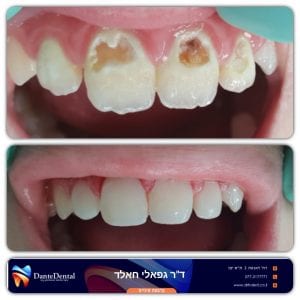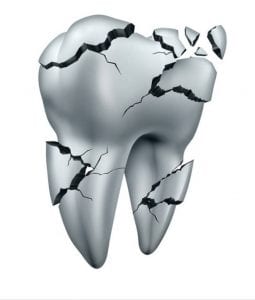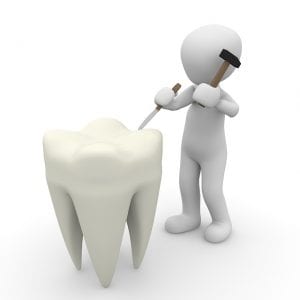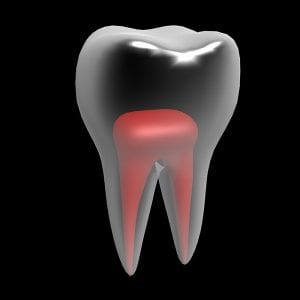As a pregnant woman you expect to get a bloated stomach. You may not have been particularly surprised by the swollen ankles, you may have expected swollen and uncomfortable legs. Pregnancy causes huge changes throughout the body, brings about expected and visible changes, surprising and hidden changes.
Of all the changes that occur during pregnancy, you may have been surprised to discover the red and swollen gums. Unfortunately, pregnancy gingivitis is very common, pregnancy can greatly increase your risk of gum disease. So if you find yourself suffering from dental problems, what can you do to alleviate the suffering of pregnancy gingivitis?

First, what exactly is gingivitis?
Simply gingivitis is an infection of the gums. This is a mild, earlier stage of gum disease. If left untreated, it can progress to more serious infections. Redness, swelling and bleeding from the gums are common signs of gingivitis. In pregnant women gingivitis can occur between 30-100% of the time.
Pregnancy gingivitis, why?
There are several reasons that can cause pregnancy gingivitis:
- The increase in pregnancy hormones also leads to an increase in blood flow to the gums. Which makes the gums softer, more sensitive and vulnerable.
- Neglecting brushing teeth and flossing allows the bacterial plaque to accumulate on the teeth, leading to gum infection – pregnancy gingivitis .
- Your immune system also behaves differently during pregnancy. It is often less effective in fighting the bacteria that cause tooth decay (cavities) and gingivitis.
WhatsApp us >>> Press here
Pregnancy gingivitis, what to do?
First and foremost, the most important step you can take to protect the health of your mouth and teeth is to maintain excellent hygiene habits at home.
- Brushing and flossing are more important than ever during pregnancy. Slowly and gently.
- Sometimes, the taste of toothpaste can cause nausea in pregnancy. If this is the case consider switching to a product that offers other flavors to make brushing more pleasant and less annoying.
- Use a soft toothbrush, a hard brush injures the sensitive gums and aggravates the inflammation.
If you suffer from vomiting:
it is especially important to pay attention to your teeth. The acid excreted with vomiting can severely damage the teeth. The damage is sometimes irreversible! It is not that the fetus takes your calcium, but the acidity in the mouth dissolves the calcium and destroys the teeth.
- Rinse with plain water after each vomit to remove food debris and balance the acidity in the mouth.
- Try not to brush immediately after a vomiting attack so as not to destroy the weakened enamel with acid, thus aggravating the damage.
- Brush with a soft, gentle toothbrush. And a toothpaste that contains fluoride to strengthen the teeth.
- If you suffer from sensitive teeth, it is recommended to use an anti-sensitivity toothpaste.
Make sure you have scheduled regular visits to your dentist
- It is recommended to visit the dentist at least once every trimester (3 months) during pregnancy.
- Your dentist is able to detect problems in time and help prevent the small problem from getting worse.
- Be sure to inform your dental clinic staff that you are pregnant when you make an appointment. Getting all the information helps them give you the best care.
- If gingivitis has developed during pregnancy, you must follow the dentist’s instructions to prevent it from getting worse.
- You may find that rinsing with saline (salty water) helps with inflammation.
- Your dentist may recommend antibiotics or antimicrobial mouthwash to treat more advanced infections.
Schedule an appointment now >>> +972-772177771
Please RATE US below









